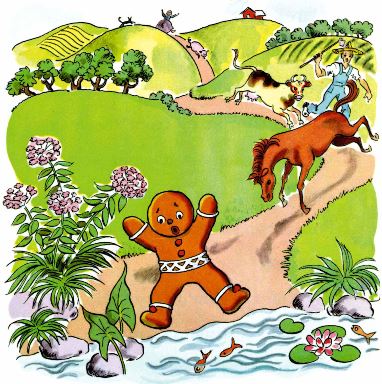Nursery rhymes have always put a smile on children’s faces. But these fun songs aren’t just about entertaining children. They help children develop early learning skills. These catchy tunes actually prepare children for the start of formal education.
Nursery rhymes are a great tool to teach children about music, rhymes, language, basic mathematics and a lot more. Nursery rhymes give children the learning foundation needed to develop good reading, writing and literacy skills later on.
Having your children listen to nursery rhymes that include music can benefit them in the following areas:
Language Development and Reading Skills
Nursery rhymes help children master the English language because they learn different repeated vowel and consonant sounds in short sequence. This teaches children how sounds are put together to form words. Nursery rhymes will also widen a child’s vocabulary. The catchy tunes, repetition, rhythm and action will help children remember the words easily. An added benefit of these simple songs is that they teach children the proper articulation, modulation and enunciation.
Nursery rhymes introduce children to the sounds and patterns of English language. An understanding of sounds and syllables will help them learn to read. Since nursery rhymes are spoken, sang and read aloud. Listening to them significantly enhances early reading skills and phonemic awareness.
Research shows that phonemic awareness is a strong predictor of a child’s reading success.
“Experts in literacy and child development have discovered that if children know eight nursery rhymes by heart by the time they’re 4 years old, they’re usually among the best readers by the time they’re 8.”
(Source: Reading Magic: Why Reading Aloud to Our Children Will Change Their Lives Forever )
Cognitive Skills
Having your children listen to nursery rhymes regularly will help them develop higher levels of comprehension skills and cognitive functioning. The words used patterns and sequence in nursery rhymes will help develop children’s memory skills. Their brains will start to store words as they enjoy the catchy tunes of the nursery rhymes.
Nursery rhymes provide a basic introduction to math logic and organized writing. Children are introduced to numbers as many of these nursery rhymes require counting. Concepts such big and small, loud and quiet, long and short, first and last etc., will help them make connections with objects, people and events in their daily lives.
Children can also easily follow the simple story and characters on a nursery rhyme. Through this, they learn the order of events as often nursery rhymes are presented in mini stories comprising a beginning, middle and end.
Physical Development
Most nursery rhymes include actions which help young children develop motor skills. A good example will be “Head, Shoulders, Knees and Toes” which involve pointing out different body parts or “Hokey Pokey” which involves body movement, giving children better control of their bodies.
Tongue and mouth muscles are also strengthen by repetitive sounds in nursery rhymes.
Social Skills and Emotional Development
A simple nursery rhyme can actually create a strong bond between a parent and child. The interaction while you act out or recite a nursery rhyme together will prepare your child for more social interactions later on when he/she starts school.
Your child will remember these rhymes and can be a social tool as he/she interacts with other children in school. Children’s creativity and imagination are also enhanced when reciting or acting out nursery rhymes. Many nursery rhymes also introduce different emotions which help children use a unique way to express themselves.
Although there are a variety of wonderful new rhymes that meet some of the above objectives, nursery rhymes are unique and timeless. The fact that nursery rhymes appear to be reinvented, in different modern stories and movies, gives credence to their validity as all time favourites and something we should pass on to young children as part of our oral tradition.

